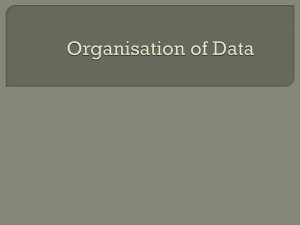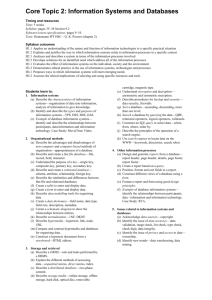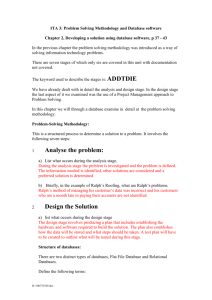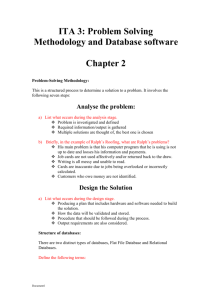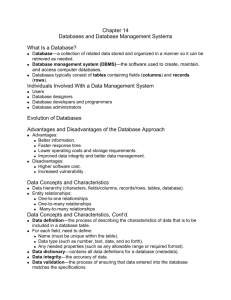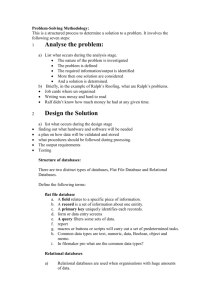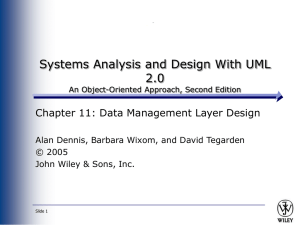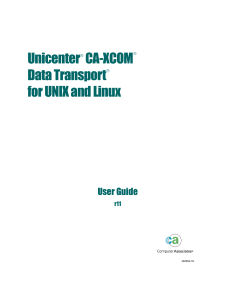Database Administration Solutions for Distributed RDBMS
advertisement
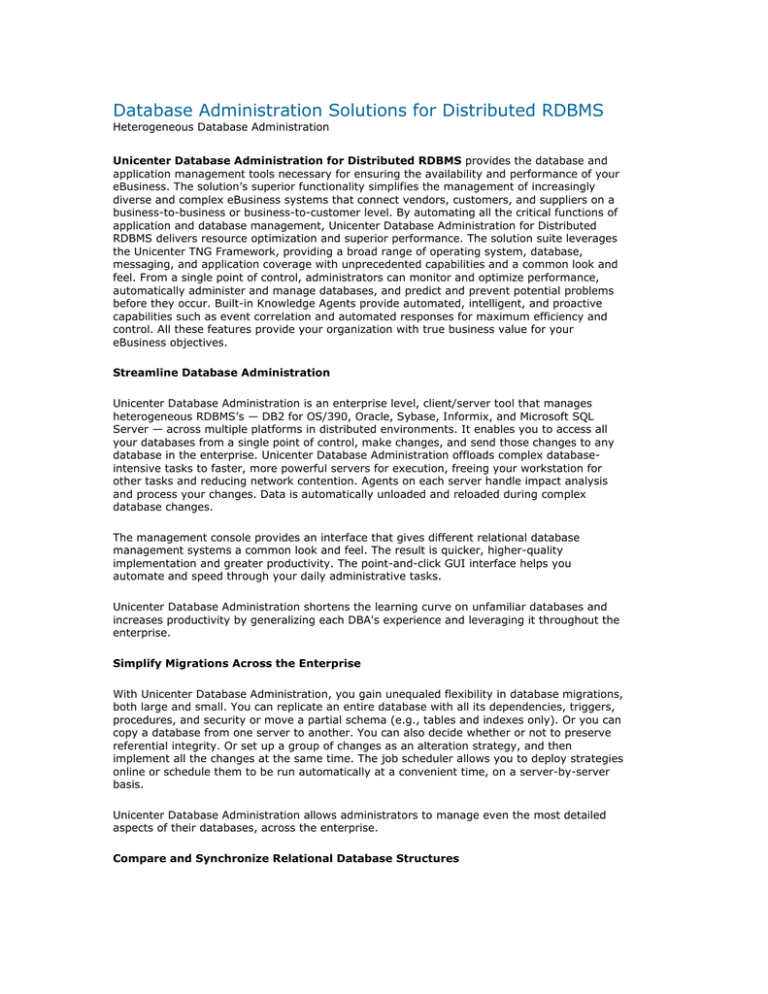
Database Administration Solutions for Distributed RDBMS Heterogeneous Database Administration Unicenter Database Administration for Distributed RDBMS provides the database and application management tools necessary for ensuring the availability and performance of your eBusiness. The solution’s superior functionality simplifies the management of increasingly diverse and complex eBusiness systems that connect vendors, customers, and suppliers on a business-to-business or business-to-customer level. By automating all the critical functions of application and database management, Unicenter Database Administration for Distributed RDBMS delivers resource optimization and superior performance. The solution suite leverages the Unicenter TNG Framework, providing a broad range of operating system, database, messaging, and application coverage with unprecedented capabilities and a common look and feel. From a single point of control, administrators can monitor and optimize performance, automatically administer and manage databases, and predict and prevent potential problems before they occur. Built-in Knowledge Agents provide automated, intelligent, and proactive capabilities such as event correlation and automated responses for maximum efficiency and control. All these features provide your organization with true business value for your eBusiness objectives. Streamline Database Administration Unicenter Database Administration is an enterprise level, client/server tool that manages heterogeneous RDBMS’s — DB2 for OS/390, Oracle, Sybase, Informix, and Microsoft SQL Server — across multiple platforms in distributed environments. It enables you to access all your databases from a single point of control, make changes, and send those changes to any database in the enterprise. Unicenter Database Administration offloads complex databaseintensive tasks to faster, more powerful servers for execution, freeing your workstation for other tasks and reducing network contention. Agents on each server handle impact analysis and process your changes. Data is automatically unloaded and reloaded during complex database changes. The management console provides an interface that gives different relational database management systems a common look and feel. The result is quicker, higher-quality implementation and greater productivity. The point-and-click GUI interface helps you automate and speed through your daily administrative tasks. Unicenter Database Administration shortens the learning curve on unfamiliar databases and increases productivity by generalizing each DBA's experience and leveraging it throughout the enterprise. Simplify Migrations Across the Enterprise With Unicenter Database Administration, you gain unequaled flexibility in database migrations, both large and small. You can replicate an entire database with all its dependencies, triggers, procedures, and security or move a partial schema (e.g., tables and indexes only). Or you can copy a database from one server to another. You can also decide whether or not to preserve referential integrity. Or set up a group of changes as an alteration strategy, and then implement all the changes at the same time. The job scheduler allows you to deploy strategies online or schedule them to be run automatically at a convenient time, on a server-by-server basis. Unicenter Database Administration allows administrators to manage even the most detailed aspects of their databases, across the enterprise. Compare and Synchronize Relational Database Structures The Compare Option enables you to compare and synchronize relational database structures, including dependent structures such as indexes, views, synonyms, and aliases. It allows you to compare database object structures on the same or on different RDBMS’s, both local and remote. The Compare option is particularly useful in moving an application from a test environment to a production environment, and in implementing change requests. For example, when developers create or modify an application using some existing objects and some new objects, the new objects need to be added to the production databases and the existing objects may need to be changed. Enterprise Compare merges the new and existing object definitions.
